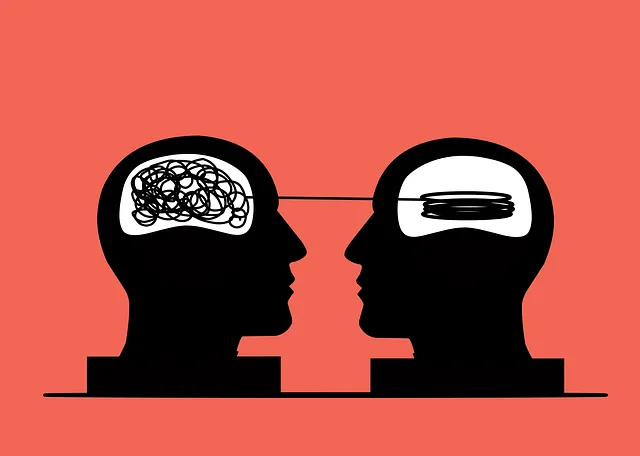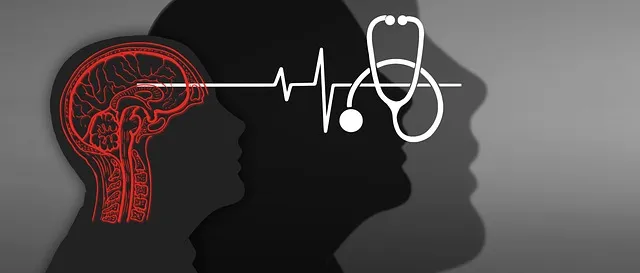Westminster Kaiser Permanente psychiatry reviews revolutionize mental health care through rigorous, multidisciplinary approaches. Integrating advanced diagnostics, conflict resolution, cultural competency training, and patient feedback mechanisms enhances diagnostic accuracy and personalized treatment plans. Continuous education emphasizes holistic practices, focusing on emotional regulation for nuanced, effective patient outcomes.
Mental illness diagnosis accuracy is paramount in effective treatment. This article explores innovative efforts made by organizations like Westminster Kaiser Permanente to enhance psychiatric reviews, integrating advanced diagnostics and multidisciplinary teams for comprehensive assessments. We delve into strategies such as standardized review processes, patient feedback mechanisms, continuous education, and more, highlighting their impact on improving diagnosis accuracy, especially within the context of Westminster Kaiser Permanente psychiatry reviews.
- Review Process Standardization: Westminster Kaiser Permanente's Approach
- Integrating Advanced Diagnostics: Enhancing Psychiatry Reviews
- Multidisciplinary Teams for Comprehensive Mental Illness Assessment
- Patient Feedback Mechanisms: Improving Diagnosis Accuracy
- Continuous Education and Training for Accurate Diagnosis Identification
Review Process Standardization: Westminster Kaiser Permanente's Approach

Westminster Kaiser Permanente has taken a significant step towards enhancing mental illness diagnosis accuracy by implementing a standardized review process within its psychiatry department. This approach ensures consistency in evaluating patient cases, reducing potential biases that may arise from subjective interpretations. The system involves a multi-step verification process where specialized teams independently assess and confirm diagnoses, significantly improving reliability.
By adopting this method, Westminster Kaiser Permanente aims to elevate the standard of care, especially with the integration of Conflict Resolution Techniques to address any discrepancies. Additionally, they provide Healthcare Provider Cultural Competency Training to ensure mental health professionals are equipped to handle diverse patient populations effectively. This holistic strategy, coupled with Mental Wellness Journaling Exercise Guidance for patients, promises a more accurate and supportive mental healthcare system.
Integrating Advanced Diagnostics: Enhancing Psychiatry Reviews

Integrating advanced diagnostics is revolutionizing psychiatry reviews at institutions like Westminster Kaiser Permanente. By leveraging cutting-edge technologies such as neuroimaging and genetic testing, mental health professionals can gain deeper insights into the brain chemistry and structural abnormalities associated with various psychiatric disorders. This enhances diagnostic accuracy and personalizes treatment plans, aligning with the growing emphasis on Mental Health Awareness.
For instance, integrating mindfulness meditation and Stress Management techniques alongside traditional diagnostics improves patient outcomes. These practices not only help patients cope with symptoms but also provide valuable data for clinical assessment, demonstrating a holistic approach to mental health care. As Westminster Kaiser Permanente continues to innovate in this area, it sets a benchmark for other institutions, underscoring the importance of combining scientific rigor with compassionate care in psychiatry reviews.
Multidisciplinary Teams for Comprehensive Mental Illness Assessment

In efforts to enhance mental illness diagnosis accuracy, healthcare institutions like Westminster Kaiser Permanente have been exploring the benefits of multidisciplinary teams for comprehensive mental health assessments. These teams, often comprising psychiatrists, psychologists, social workers, and other mental health professionals, bring diverse perspectives and expertise to evaluate patients. By integrating various disciplines, these teams can conduct more holistic and precise diagnoses, considering not just symptoms but also psychological, social, and cultural factors that may influence mental wellness.
Westminster Kaiser Permanente psychiatry reviews highlight the positive impacts of such collaborative approaches. Multidisciplinary assessment allows for a deeper understanding of patients’ mental health issues, as different professionals can identify subtle nuances or co-occurring disorders that might be missed by a single specialist. Furthermore, this integrated model improves patient care by offering tailored treatment plans that address multifaceted aspects of mental health, thereby enhancing the overall effectiveness of healthcare provider interventions and promoting better outcomes for individuals struggling with mental illness.
Patient Feedback Mechanisms: Improving Diagnosis Accuracy

Patient feedback mechanisms play a pivotal role in enhancing mental illness diagnosis accuracy at healthcare organizations like Westminster Kaiser Permanente. Encouraging patients to share their experiences through psychiatric reviews allows for insights into the effectiveness of treatments and the overall patient-provider interaction. These reviews can pinpoint areas where improvements are needed, such as communication gaps or misinterpreting symptoms. By integrating feedback from diverse patient populations, mental health professionals can refine their assessment strategies and tailor interventions better to individual needs.
Implementing self-awareness exercises and public awareness campaigns development around emotional regulation can further bolster diagnosis accuracy. Educating both patients and healthcare providers on the nuances of mental health conditions fosters a culture of open dialogue and informed decision-making. Such initiatives complement Westminster Kaiser Permanente psychiatry reviews by promoting a more comprehensive understanding of emotional experiences, thereby improving the reliability of diagnoses and treatment planning.
Continuous Education and Training for Accurate Diagnosis Identification

Mental health professionals play a crucial role in improving diagnosis accuracy, especially in complex cases. Continuous education and training programs are essential tools to enhance their ability to identify subtle symptoms and make precise diagnoses. At Westminster Kaiser Permanente, psychiatry reviews have highlighted the importance of staying abreast of the latest research and treatment modalities. These reviews emphasize that regular updates on diagnostic criteria and emerging therapies can significantly impact patient outcomes.
By participating in such educational initiatives, healthcare providers can better understand the nuances of mental illness. This includes recognizing how conditions like burnout prevention and mood management present differently across various demographics. Such training encourages professionals to adopt a holistic approach, considering not just symptoms but also emotional regulation as a key factor in accurate diagnosis.
Westminster Kaiser Permanente’s innovative strategies, including standardized review processes, advanced diagnostics, multidisciplinary assessments, patient feedback mechanisms, and continuous education, significantly enhance the accuracy of mental illness diagnoses. By integrating these practices, the organization is fostering more comprehensive, reliable, and patient-centered psychiatric reviews, setting a standard for improved mental health care across the industry. For instance, their approach to Westminster Kaiser Permanente psychiatry reviews demonstrates how healthcare systems can navigate towards better understanding and treating mental health conditions.






